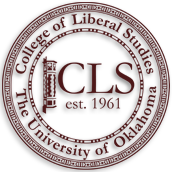About 50 years ago, roughly the same time the College of Liberal Studies was being created, a guy named Cyril Houle conducted a famous adult learning research project. The results of the project were published in a book, The Inquiring Mind, by the University of Oklahoma Press in the early 60s. The book had a big impact on adult learning theory, as well as my own thinking when I read it several years ago.
Houle wanted to know what it is that motivates adult students to seek learning opportunities. What makes an adult learner decide to actively seek out a class, a book, or a teacher? Why do they do it, and what is the payoff?
To answer these questions, Houle conducted in-depth interviews with 22 adults who were “conspicuously engaged in various forms of continuing learning” (p. 13). His interviews led him to identify three basic motivations for adult learners:
• Goal-oriented learners – who use education as a means of achieving some other goal(s);
• Activity-oriented learners – who participate in education for the sake of the activity itself and social interaction;
• Learning-oriented learners – who seek knowledge for its own sake.
Houle’s findings have been debated, challenged, disputed, affirmed and expanded upon for years. Some say the typology of learners he creates is too simplistic. Others say the number of students it is based upon was too small to have any validity. My personal experience after working with adult learners for 18 years is that Houle’s broad categories are very accurate.
By far, the majority of the students I deal with in CLS seem to be goal-oriented learners. They want, even need, a degree to help them advance in their professions and careers. These students are focused on moving through their degree program with the greatest efficiency and speed possible. We have designed our programs and student services to help them do just that.
Our hope, however, is that while we are helping goal-oriented learners to achieve their goal(s), we are at the same time serving – and even creating – students who are learning-oriented. We try to offer courses and curriculum that will entice, engage, interest and bait our students into a life-long, passionate pursuit of knowledge just for the sake of learning. It is my observation that most of us administrators and faculty members are learning-oriented ourselves. We enjoy learning and thinking about new things, whether or not they have a practical or pragmatic value to our lives or careers. We enjoy being engaged in what has been called “the life of mind.”
For our students reading this blog entry, I would ask you to pause for a moment and think about your own motivation for learning. Why are you pursuing your degree? Have you noticed yourself becoming more confident, more passionate, more interested in your studies and the world around you? If so, you may be discovering that you are, or have become, a learning-oriented adult learner.
Wednesday, June 2, 2010
Subscribe to:
Post Comments (Atom)






This comment has been removed by the author.
ReplyDelete